Parliament
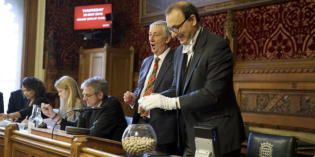
How Private Members’ legislation improved local government social value
Chris Game assesses the efficacy of one of Parliament’s most antiquated procedures, the Private Members’ Bill, and finds that, though they have proliferated to little effect, in some notable cases, including local government procurement, they have instigated considerable reform.
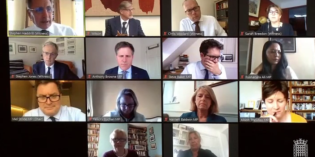
Bedding down, treading water and taking two steps forward: gender equality and the 2019–20 House of Commons select committee elections
Stephen Holden Bates, Stephen McKay and Mark Goodwin assess the gender balance on the newly elected select committees, and their chairs, and find there have been clear improvements in some areas. However, further progress cannot be assumed, and they recommend Parliament considers more reforms to improve representation within its committee system.

Covid-19: why the emerging public debt crisis needs urgent engagement by parliamentarians
As parliaments around the world adjust to working remotely during the Covid-19 pandemic, Franklin De Vrieze argues that it is vital that they not only scrutinise governments’ public health policies, but also have a role in overseeing the ensuing new public debt, particularly in developing countries.
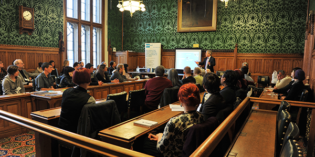
Book Review | Dramas at Westminster: Select Committees and the Quest for Accountability by Marc Geddes
In Dramas at Westminster: Select Committees and the Quest for Accountability, Marc Geddes aims to open up everyday life along the committee corridors of the Palace of Westminster to examine how the UK Parliament performs the role of scrutiny. The book tells us a great deal about the public and hidden power of select committees at a time when scrutiny is more vital than it has ever been, writes Ben Worthy.

Not all scrutiny is equal: how parliaments vary in scrutinising the implementation of legislation
Parliaments can contribute to more accountable governance, not just by questioning government ministers in the chamber, but also by monitoring the implementation and impact of the laws they pass. This post-legislative scrutiny can be divided into four categories: passive, informal, formal and independent forms. Comparatively, parliaments vary according to the extent to which they carry out post-legislative scrutiny. Franklin De Vrieze discusses these variations and argues that to be effective parliaments should both look at the implementation of legislation, its impact and at unintended consequences of some laws. At the time of the Covid-19 crisis, good-quality scrutiny of policies and legislation in all areas, including legislation on public health and government’s response to Covid-19, has become all the more important.

Female parliamentarians still face a motherhood penalty, but the evidence globally suggests it can be ended
It has long been assumed that female politicians face a trade-off between having a family life and a successful parliamentary career, while their male colleagues do not. Devin Joshi and Ryan Goehrung find that, while female MPs are still more likely to be unmarried and have fewer children, the gap in parental and marital status of members of parliament varies considerably internationally. They argue that by implementing social reforms to reduce gender inequality, and introducing specific reforms to create more inclusive parliaments, this gap could be closed worldwide.

Gender diversity among Committee witnesses: the large variations in the Commons and why Holyrood is doing better
Hugh Bochel draws on 2017–19 data to discuss gender diversity among witnesses to select and public bill committees in the Commons, and compare these to figures from the Scottish Parliament.
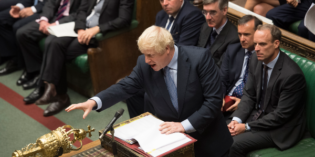
A Conservative majority means parliamentary scrutiny is in danger of being weakened
Marc Geddes considers the potential impact the recent Conservative victory may have upon parliamentary scrutiny. The size of the majority, the current government’s agenda for legislative reform and the changes to select committee membership may all have a detrimental effect on parliament’s ability to scrutinise government effectively.
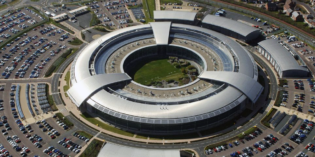
What impact has the general election had on the work of the Intelligence and Security Committee?
Following the failure of the government to publish the Intelligence Security Committee’s report into Russian interference ahead of the election, Andrew Defty examines the impact of the general election on the ISC, outlines the process for the establishment of a new committee and assesses the likely priorities of the reconstituted committee.
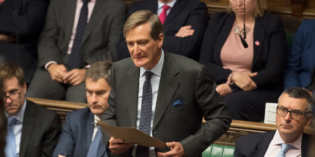
The government’s refusal to release the Intelligence and Security Committee’s report into Russian activities against the UK is part of a worrying pattern of obstruction and delay
Parliament’s Intelligence and Security Committee has produced a report into Russian interference in UK politics, but it cannot be published without government approval. Andrew Defty explains that Number 10’s failure to release the report before Parliament was dissolved is the latest in a series of government actions that have hindered effective parliamentary scrutiny of the intelligence and security services. Reform to ensure the committee has greater independence from executive obstruction should be considered in the next Parliament.


 Democratic Audit's core funding is provided by the Joseph Rowntree Charitable Trust. Additional funding is provided by the London School of Economics.
Democratic Audit's core funding is provided by the Joseph Rowntree Charitable Trust. Additional funding is provided by the London School of Economics.